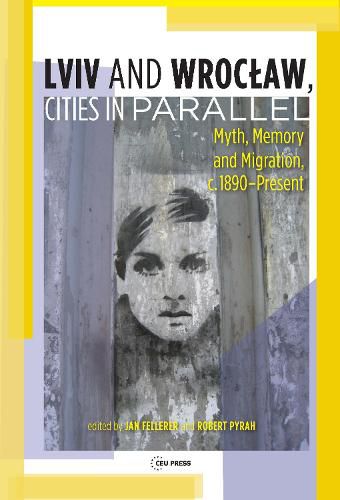Readings Newsletter
Become a Readings Member to make your shopping experience even easier.
Sign in or sign up for free!
You’re not far away from qualifying for FREE standard shipping within Australia
You’ve qualified for FREE standard shipping within Australia
The cart is loading…






This title is printed to order. This book may have been self-published. If so, we cannot guarantee the quality of the content. In the main most books will have gone through the editing process however some may not. We therefore suggest that you be aware of this before ordering this book. If in doubt check either the author or publisher’s details as we are unable to accept any returns unless they are faulty. Please contact us if you have any questions.
In the 20th century, both Lviv and Wroclaw went through cataclysmic changes. Assertively Polish pre-war Lwow became Soviet Lvov, and then, after 1991, it became assertively Ukrainian Lviv. Breslau, the third largest city in Germany before 1945, was in turn ‘recovered’ by communist Poland as Wroclaw. Practically the entire population of Breslau was replaced, and Lwow’s demography too was dramatically restructured: many Polish inhabitants migrated to Wroclaw and most Jews perished or went into exile. Migration entailed new myths and the construction of official memory projects. The chapters in this edited book compare the two cities by focusing on lived experiences and ‘bottom-up’ historical processes. Their sources and methods are those of micro-history and include oral testimonies, memoirs, direct observation and questionnaires, examples of popular culture and media pieces. The essays explore many manifestations of the two sides of the same coin, loss on the one hand, gain on the other, in two cities that are complementary.
$9.00 standard shipping within Australia
FREE standard shipping within Australia for orders over $100.00
Express & International shipping calculated at checkout
This title is printed to order. This book may have been self-published. If so, we cannot guarantee the quality of the content. In the main most books will have gone through the editing process however some may not. We therefore suggest that you be aware of this before ordering this book. If in doubt check either the author or publisher’s details as we are unable to accept any returns unless they are faulty. Please contact us if you have any questions.
In the 20th century, both Lviv and Wroclaw went through cataclysmic changes. Assertively Polish pre-war Lwow became Soviet Lvov, and then, after 1991, it became assertively Ukrainian Lviv. Breslau, the third largest city in Germany before 1945, was in turn ‘recovered’ by communist Poland as Wroclaw. Practically the entire population of Breslau was replaced, and Lwow’s demography too was dramatically restructured: many Polish inhabitants migrated to Wroclaw and most Jews perished or went into exile. Migration entailed new myths and the construction of official memory projects. The chapters in this edited book compare the two cities by focusing on lived experiences and ‘bottom-up’ historical processes. Their sources and methods are those of micro-history and include oral testimonies, memoirs, direct observation and questionnaires, examples of popular culture and media pieces. The essays explore many manifestations of the two sides of the same coin, loss on the one hand, gain on the other, in two cities that are complementary.